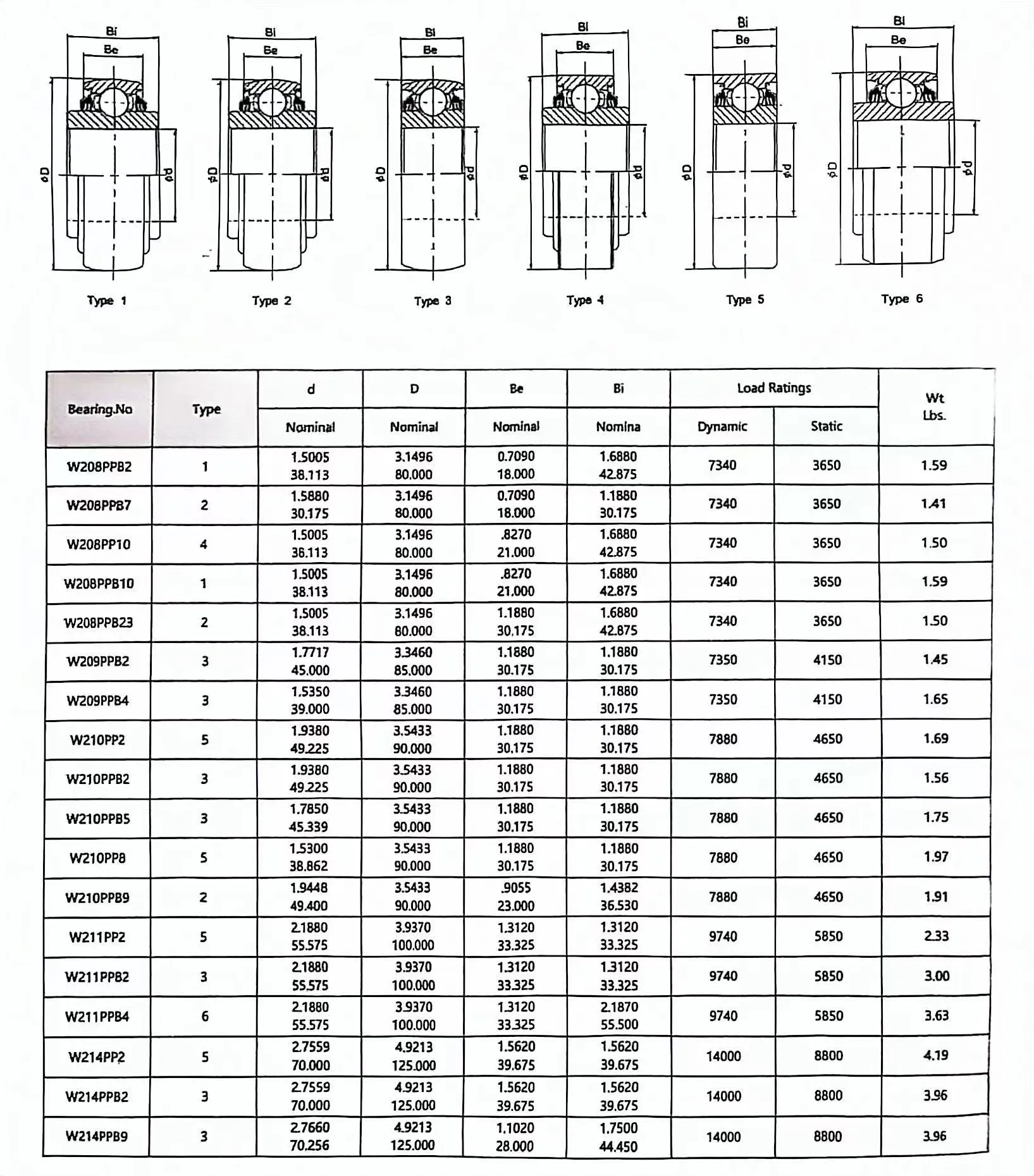Aug . 06, 2024 09:36 Back to list
Exploring the Cost and Manufacturers of 6310 Bearings for Your Industrial Needs
Understanding 6310 Bearing Price and Manufacturers
The industrial bearing market is a vast and essential sector that plays a critical role in various manufacturing processes by ensuring smooth operation and longevity of machinery. A commonly used type of bearing is the 6310 bearing, known for its versatility, efficiency, and reliability. In this article, we will explore the factors influencing the pricing of 6310 bearings and a glimpse into notable manufacturers in this field.
What is a 6310 Bearing?
The 6310 bearing is a type of deep groove ball bearing, which features a single row of balls contained within a cage. Its design allows it to accommodate radial loads as well as moderate axial loads in both directions. The 6310 bearing is widely favored in applications such as electric motors, automotive components, and various machinery due to its ability to reduce friction and handle significant forces.
Factors Influencing the Price of 6310 Bearings
1. Material Quality The raw materials used in the production of bearings significantly affect their price. High-quality steel and advanced composites ensure durability and performance, thus leading to a higher price point. Conversely, lower-quality materials may result in cheaper bearings but could compromise on performance and lifespan.
2. Manufacturing Processes The techniques and technologies employed in bearing production also contribute to cost variations. Manufacturers that utilize advanced precision machining and quality control processes tend to produce more reliable bearings, which can come at a premium.
3. Volume and Demand Market demand for 6310 bearings can fluctuate based on industrial trends and the health of the economy. Manufacturers often adjust prices based on supply and demand dynamics. For example, during periods of increased manufacturing output or infrastructural developments, the demand for bearings may rise, leading to potential price increases.
4. Brand Reputation Established manufacturers with a reputable brand often command higher prices due to perceived quality and reliability. Customers may be willing to pay more for bearings from known brands as it lowers the risk of premature failure and related operational losses.
6310 bearing price manufacturers

5. Certification and Standards Bearings that meet specific international standards (such as ISO or ABEC ratings) may be priced higher due to the rigorous testing and quality assurance processes involved in their production. These certifications often affirm the bearing's performance and reliability, giving buyers greater confidence in their investment.
Notable Manufacturers of 6310 Bearings
Several manufacturers have earned a reputation for producing high-quality 6310 bearings.
1. SKF A global leader in bearing manufacturing, SKF produces a wide range of bearings, including the 6310 series. They are known for their innovation and quality, offering products that meet international standards.
2. NSK NSK is another prominent manufacturer with a strong presence in the bearing industry. They focus on precision and reliability, making their bearings suitable for various demanding applications.
3. FAG Part of the Schaeffler Group, FAG is well-regarded for their precision engineering and high-performance bearings. The 6310 bearing from FAG is widely used in automotive and industrial applications.
4. Timken Known for its expertise in tapered roller bearings, Timken also produces deep groove ball bearings, including the 6310. Their focus on quality and durability makes them a preferred choice among manufacturers.
Conclusion
In conclusion, the price of 6310 bearings is influenced by multiple factors, including material quality, manufacturing processes, demand, brand reputation, and compliance with international standards. When investing in bearings, it's crucial for manufacturers and businesses to consider these factors in order to choose the right products for their needs. Engaging with reputable manufacturers ensures not only a reliable product but also peace of mind in terms of performance and longevity, ultimately leading to more efficient and effective machinery operations.
Latest news
-
CKZ-A Sprag Type Freewheels One Way Clutch - High Performance & Reliable
NewsAug.16,2025
-
ASNU 12-35 NFS TFS Roller Freewheel One Way Clutch Bearings
NewsAug.15,2025
-
Durable AK208 Pillow Block Housing | Reliable Bearing Support
NewsAug.14,2025
-
28.6x80x36.53mm W208PPB5 Heavy Duty Disc Harrow Bearing
NewsAug.13,2025
-
CKZF-B Series Flywheel Backstop Clutch: Reliable Reverse Prevention
NewsAug.12,2025
-
W210PPB6 PEER Square Bore Farm Bearings - Heavy-Duty & Durable
NewsAug.11,2025